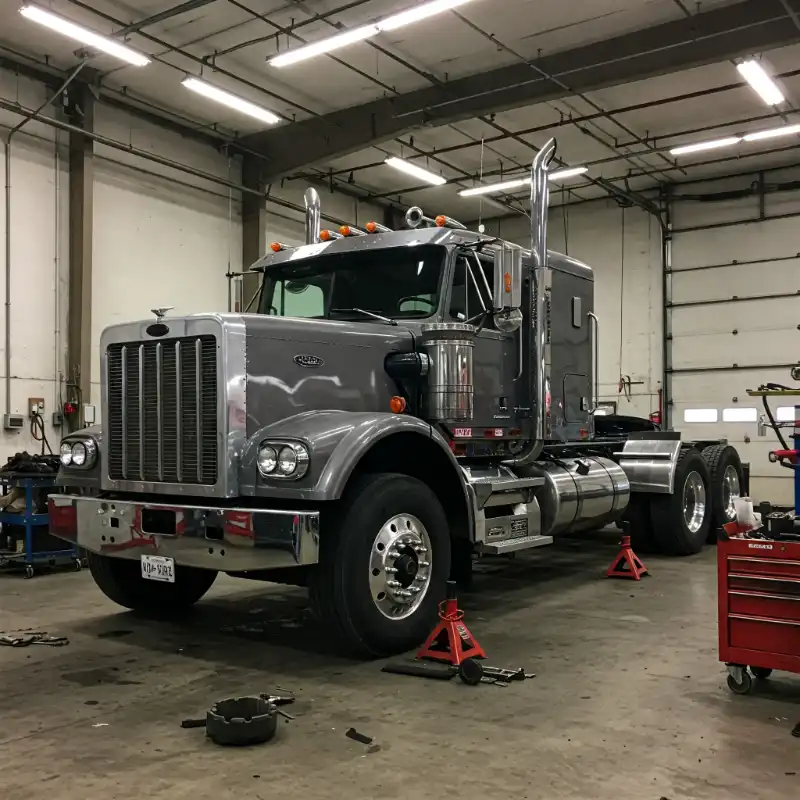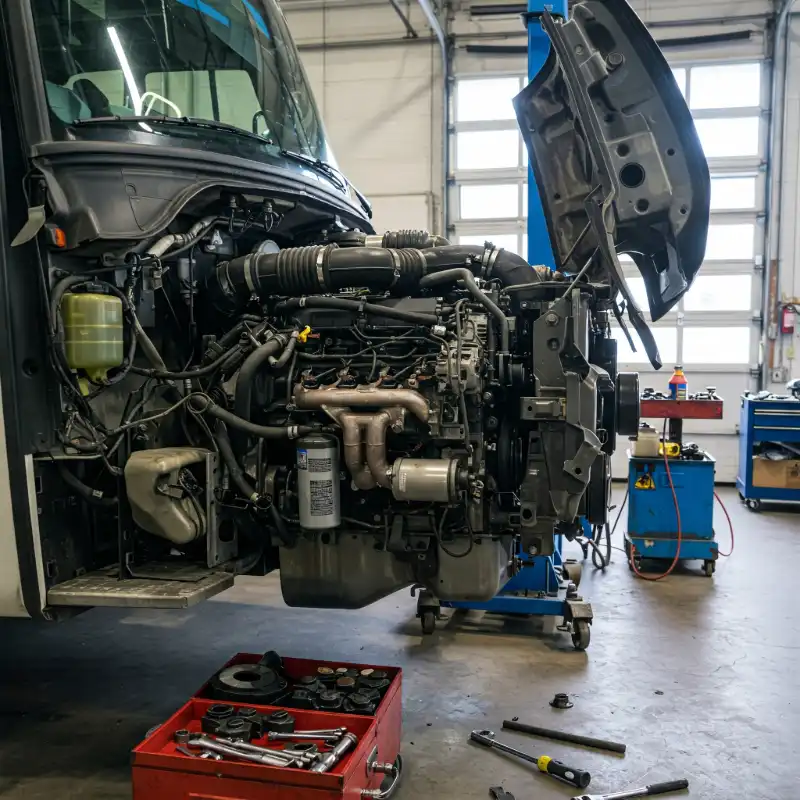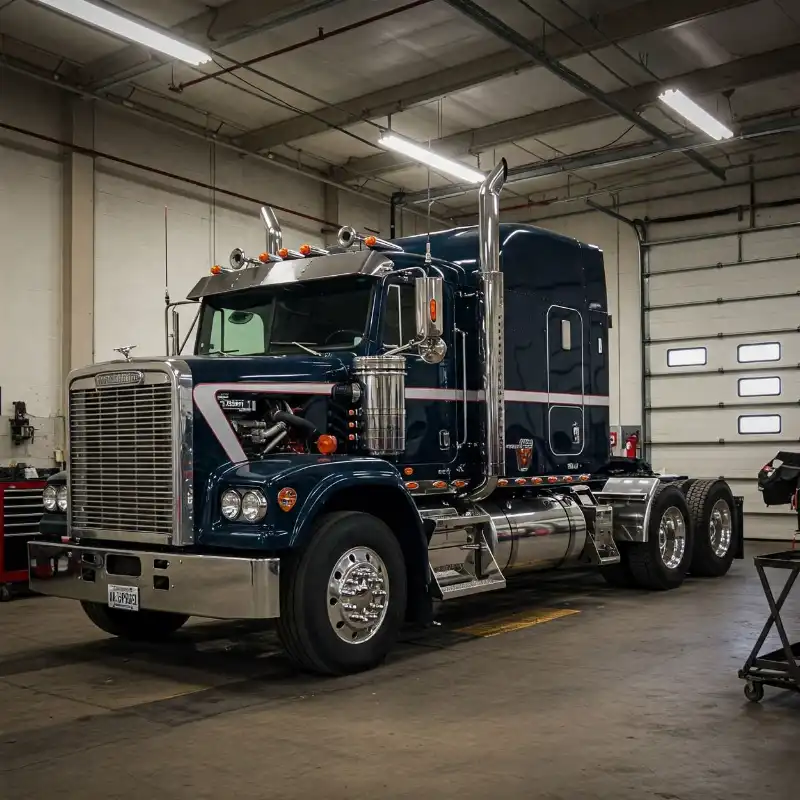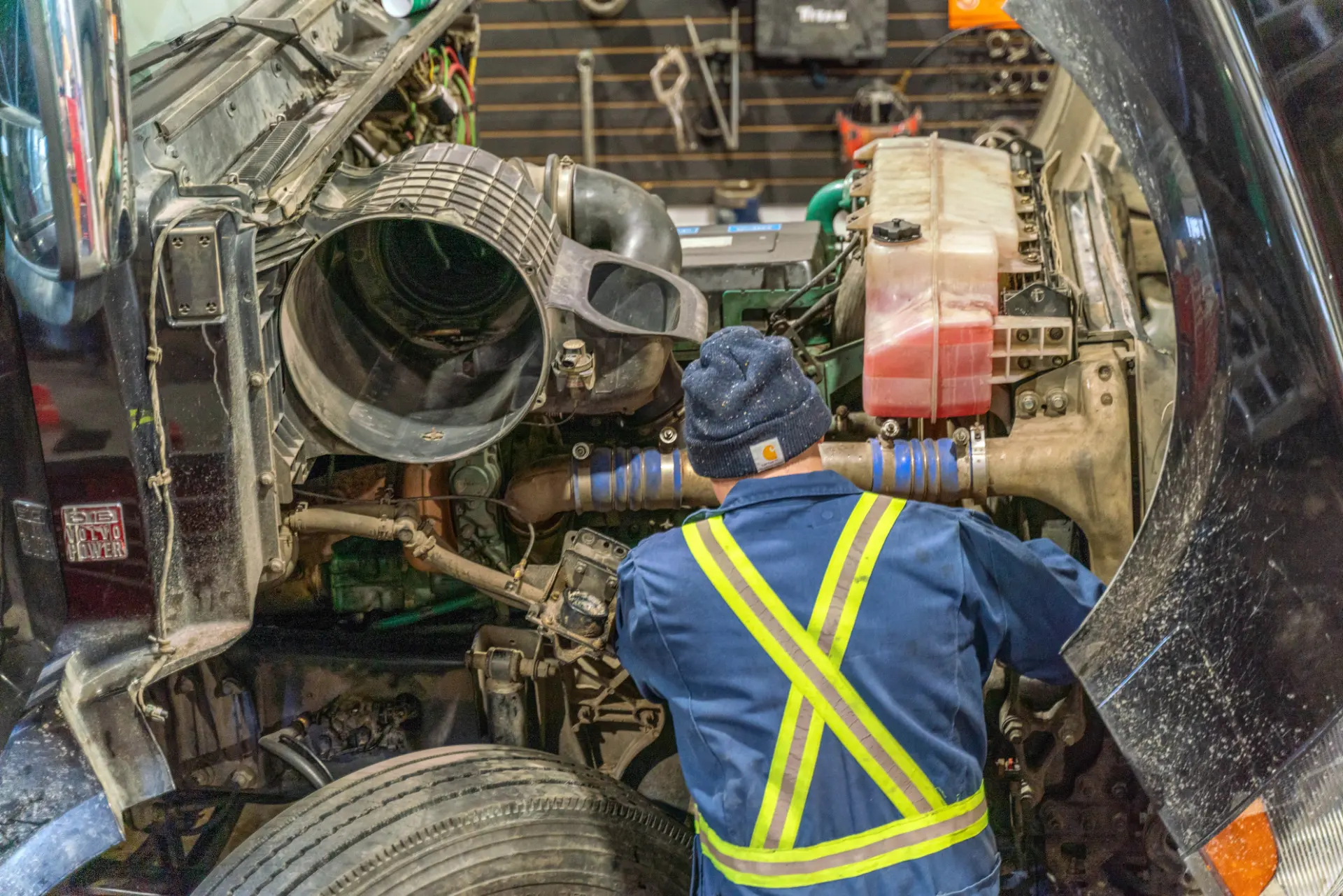Tips For Proper Axle Lubrication and Maintenance in Heavy-duty Trucks
Learn the essential steps for axle lubrication and maintenance in heavy-duty trucks. Keep your axles in top shape with the right grease, regular inspections, and proper alignment.

Proper axle lubrication and maintenance are crucial for heavy-duty trucks to ensure smooth and safe operation. Axles support the weight of the truck and allow the wheels to turn, so keeping them properly lubricated and maintained prevents wear and helps avoid breakdowns. Ensuring proper axle lubrication and maintenance isn’t just about keeping your rig on the road—it's essential for safety, efficiency, and longevity. Here are some useful tips for axle care in heavy-duty trucks.
Use the Right Grease for the Job
Choosing the wrong grease can be a death sentence for your axles. You’ll need a grease designed for heavy-duty use—one that stays put under load and won’t break down under pressure.
- Consult your owner’s manual to determine the specific grease grade required. Most trucks use NLGI #2 lithium complex grease, which provides superior adhesion, water resistance, and shear stability.
- Look for greases with EP (Extreme Pressure) additives. These additives handle the high stresses typical in heavy-duty applications, especially during sharp turns or heavy loads.
Clean Thoroughly Before Lubricating
Applying fresh grease on top of old, contaminated grease is a recipe for disaster. Dirt and old grease can grind down metal surfaces, causing axle bearings to wear faster.
- Use a wire brush or scraper to remove existing grease buildup.
- Apply a degreasing solvent to ensure all parts are squeaky clean.
- Wipe the axle components with a lint-free cloth—even tiny debris can lead to surface damage.
Stick to a Regular Lubrication Schedule
Axle lubrication isn’t a one-and-done task. Depending on how you use your truck, grease intervals should occur every 10,000 to 15,000 miles. However, extreme conditions call for more frequent checks.
- If you're hauling heavy loads or driving through wet and muddy environments, inspect your axles more often. Moisture and contaminants can wash out the grease.
- Always check for leaking axle seals between intervals. If seals dry out or crack, grease levels can deplete quickly, leaving your axles vulnerable.
Grease Slowly and Methodically
Lubrication is not just about slapping on grease—how you apply it matters. Rushing through the process can damage seals or cause uneven grease distribution.
- Use a low-pressure grease gun and apply grease slowly. This gives the new grease time to push out the old grease properly.
- Rotate the wheels as you apply grease to ensure it coats every internal surface uniformly.
- Stop when you see grease emerge from the fittings—pumping too quickly risks overfilling, which can blow seals.
Inspect Axle Components During Lubrication
While you’re at it, it pays to inspect critical components for wear and tear. Spotting an issue early saves you from breakdowns on the road.
- Look for cracked seals, worn breather caps, and loose U-joints. Damaged U-joints can lead to driveline vibrations.
Inspect Axle Housing
- Periodically inspect the axle housing for any cracks or damage. Housings flex slightly during operation.
- Cracks typically form around mounting brackets, spring seats and suspension connections.
- Repair or replace damaged axle housings before operation to prevent further issues.
Don’t Forget the Differential Oil
The differential—tucked within the axle housing—needs gear oil to lubricate its intricate gears and bearings. A truck’s differential transfers power from the engine to the wheels while allowing them to rotate at different speeds, ensuring smooth turns and improved traction. Over time, this oil breaks down and becomes contaminated.
- Change the differential oil according to the manufacturer’s recommendations, especially after long hauls or extreme driving conditions.
- Use the correct gear oil viscosity for the operating environment. Thick oil works well in hot climates, while thinner oils are ideal for cold-weather driving.
- Inspect the magnetic drain plug after every oil change. Metal particles on the plug indicate wear inside the differential and might require further investigation.
Monitor for Leaks and Seal Integrity
Any sign of a leaking seal should be addressed immediately. Even small leaks can cause big problems by washing away grease or exposing the axle to contaminants. Leaks indicate seals requiring replacement or a compromised axle housing. Identify the source of any leaks quickly.
- Regularly check hub oil levels if your truck uses oil-bath wheel ends. A dry hub can cause friction, leading to overheating or even bearing failure.
- Watch for wet axle surfaces, which could indicate that grease is seeping past a compromised seal.
- Monitor hub oil levels on oil-bath wheel ends. Low oil allows contamination and oxidation inside the hub.
Keep Your Axles Aligned and Balanced
Proper axle alignment ensures smooth operation and helps prevent uneven tire wear. Misaligned axles can put extra strain on bearings and suspension components, causing early failure.
- Perform axle alignment checks periodically—especially after off-road driving or hauling heavy loads.
- Loose suspension parts can throw the alignment off. Check them regularly and tighten any bolts or bushings as needed.
Upgrade Your Filtration Systems
Clean lubricants and oils are vital for keeping your axles healthy. High-quality filters catch contaminants that could damage internal components.
- Install fine filtration systems to remove debris from axle oil, and make sure to change filters at recommended intervals.
- Consider upgrading to magnetic drain plugs and vent filters to further protect the axle housing.
Use Quality Filtration Systems
- Invest in high-quality filtration systems to remove contaminants from axle oils and lubricants.
- Fine filtration is crucial to prevent abrasive particles from causing premature wear on internal axle components.
- Replace filters at recommended intervals to maintain proper filtration. Clogged filters allow the buildup of particles.
Upgrade Filtration
- When rebuilding differentials, upgrade to high-capacity magnetic drain plugs.
- Adding magnets inside the differential cover provides additional filtration.
- Install vent filters to keep the housing interior clean.
Conclusion
Axle maintenance isn’t glamorous, but it’s essential for keeping your heavy-duty truck rolling smoothly. By following these best practices—using the right grease, sticking to regular intervals, and inspecting components regularly—you’ll avoid breakdowns and maximize axle longevity. With Fleetgo Heavy Duty Inc., your truck will have proper lubrication and proactive maintenance to keep your wheels spinning without a hitch. For more information about heavy-duty trucks, give our article on engine health.
More Articles

5 Common Issues Found During CVIP Inspections in Edmonton

Spring Driving Prep: What Your Car Needs After Winter

The Biggest Fleet Repair Mistakes Business Owners Make
Contact FleetGo
Get in touch with Fleetgo today to request a quote or to schedule in-shop or mobile services in Edmonton & the surrounding area! Our mobile service extends to a 100km radius around Edmonton for emergency roadside assistance & mobile truck & fleet repairs, including Sherwood Park, Spruce Grove, Fort Saskatchewan, St. Albert, Stony Plain, along Highway 16, & more!



